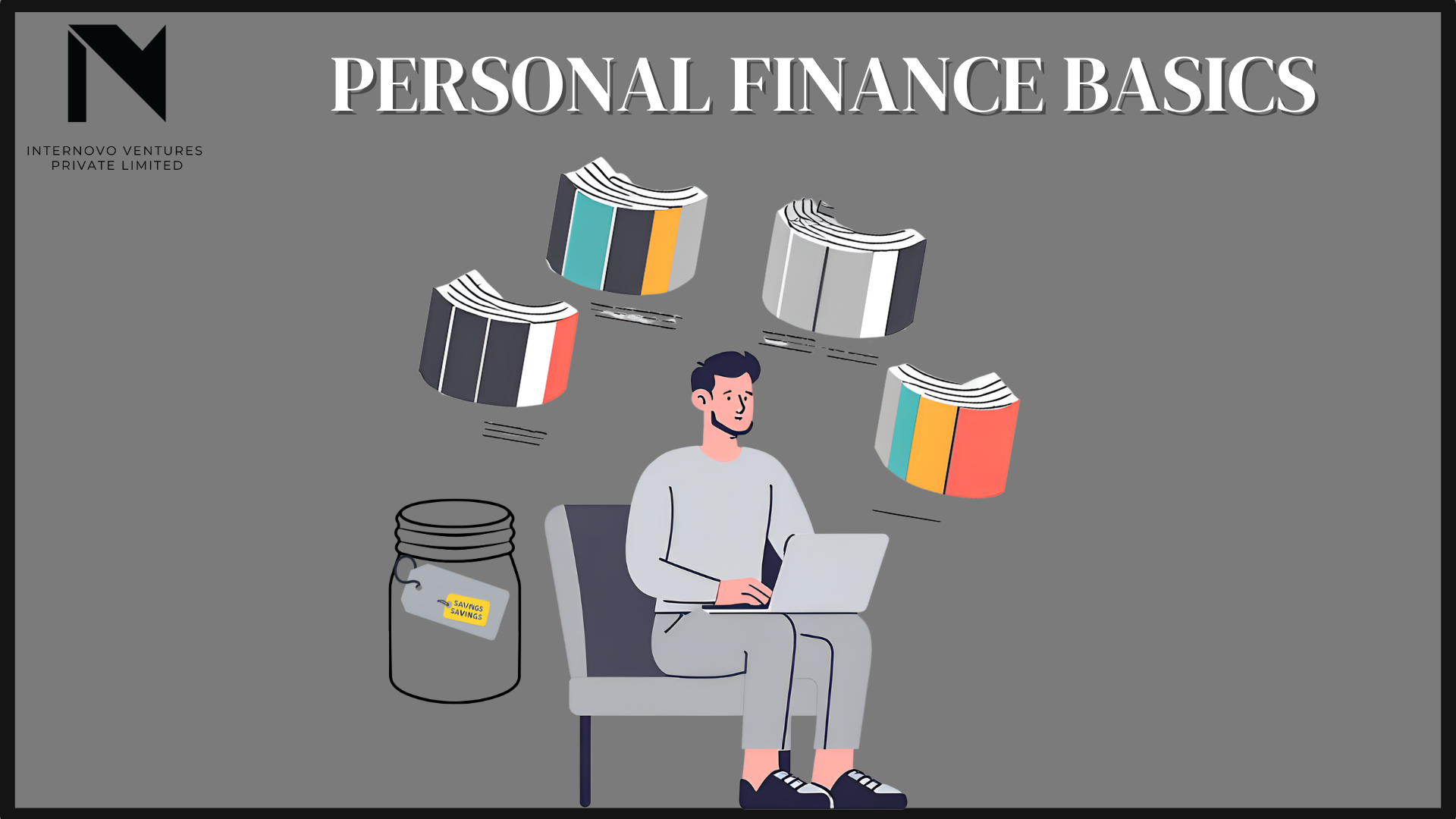At Internovo, we believe in teaching and empowering individuals with the knowledge they need to make the right financial decisions. Today, finance is the core of life. With access to sufficient money being at the heart of everything, understanding the building blocks of the financial journey is crucial. This will assist in a stable future and help sustain oneself in this ever-changing environment.
Core Concepts of Personal Finance
1. Budgeting
Budgeting is a plan; a roadmap designed to cover incomes, expenses, savings, investments, etc. Understand your income and list all the expenses, categorized into fixed and variable. Differentiate between needs and wants. Allocate funds to the expenses responsibly, and keep the rest aside for saving and investing. One of the many budgeting techniques is the 50/30/20 Rule: Designate half of your pay to necessities (rent, food, utilities), 30% to needs (amusement, eating out), and 20% to savings, investments, and debt repayment. There are similar other techniques. Choose what suits you the best.
2. Saving
Saving is crucial, as life is subject to financial storms, and with the rising uncertainty, it is important to create backups and a safety net. Ideally, one should save 10% to 20% minimum every month from the earnings. Create an emergency fund to cover unexpected expenses like medical, car, etc., with the fund amount equal to 3 to 6 months of living expenses. Also, start with goal-based savings: vacation, vehicle, business, etc. Tips for beginners: automate the savings, start young, be consistent, use multiple savings accounts, etc.
3. Investment
Savings alone will hold you in a safe financial condition, yet your wealth won't grow. Investment is a tool to grow your money and financial condition. Investments are subject to risk, but the higher market returns are worth the same. Start with low-risk investment options; with the growth of knowledge and comfort, grow your portfolio to riskier options. Diversify your portfolio into stable and riskier funds. Key takeaways: start slow, it is a long-term journey, do not let short-term market fluctuations scare you, and lastly regularly review and revamp the strategy.
4. Debt Management
Debt is a great tool in terms of finance, yet it can be a huge obstacle that can ruin your financial stability. Start understanding the debt, borrow smartly, prioritize paying off higher-interest debt first, create refinancing options or consolidation options, and create a debt repayment plan.
Know your money! Personal finance basics are milestones on the long journey. If embraced right, it can keep you financially stable and assist you in achieving your dreams. Take control of your financial future and take small steps for freedom.

